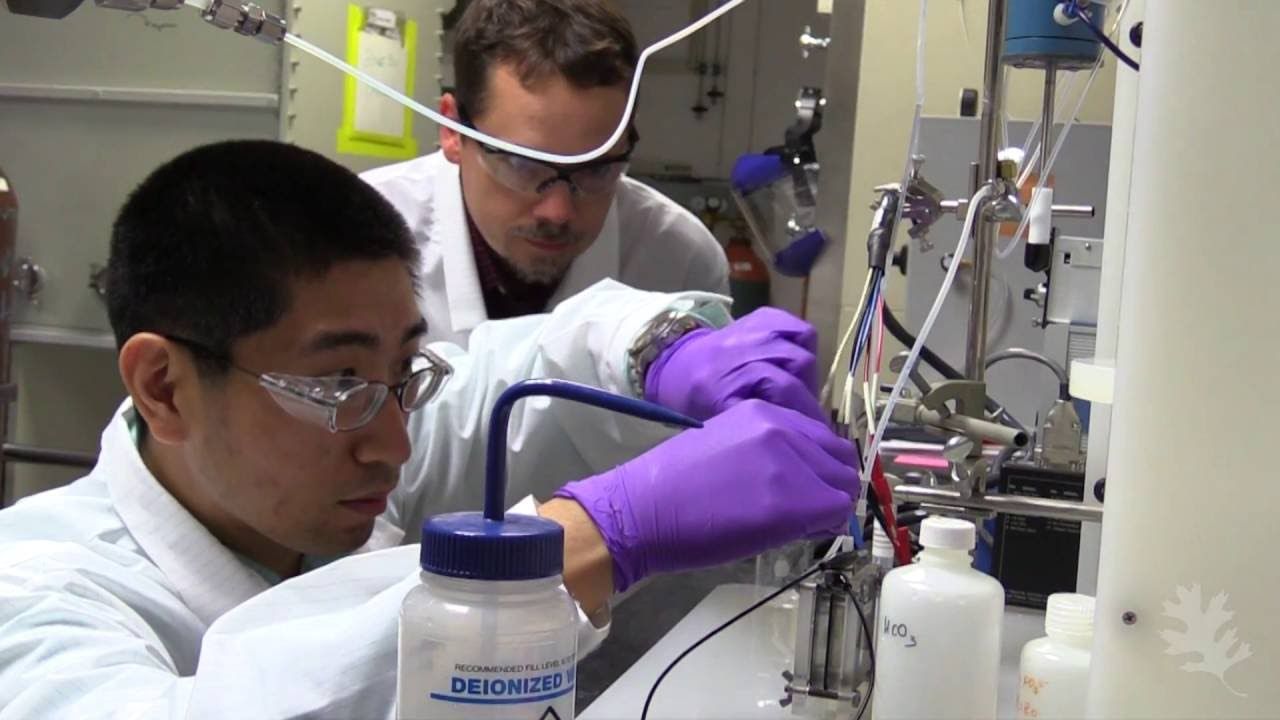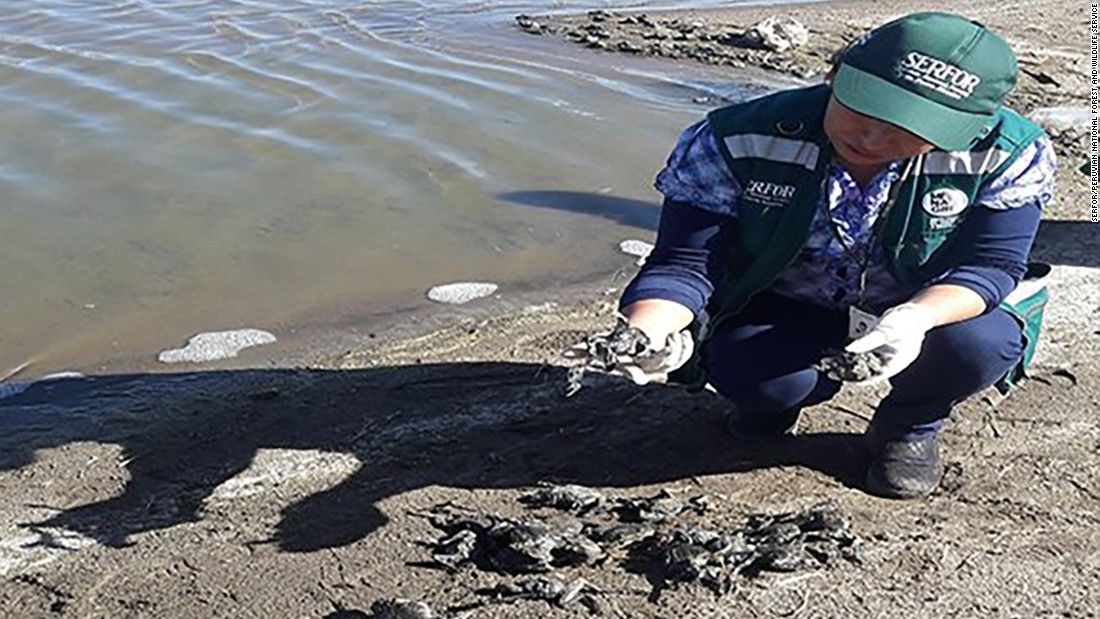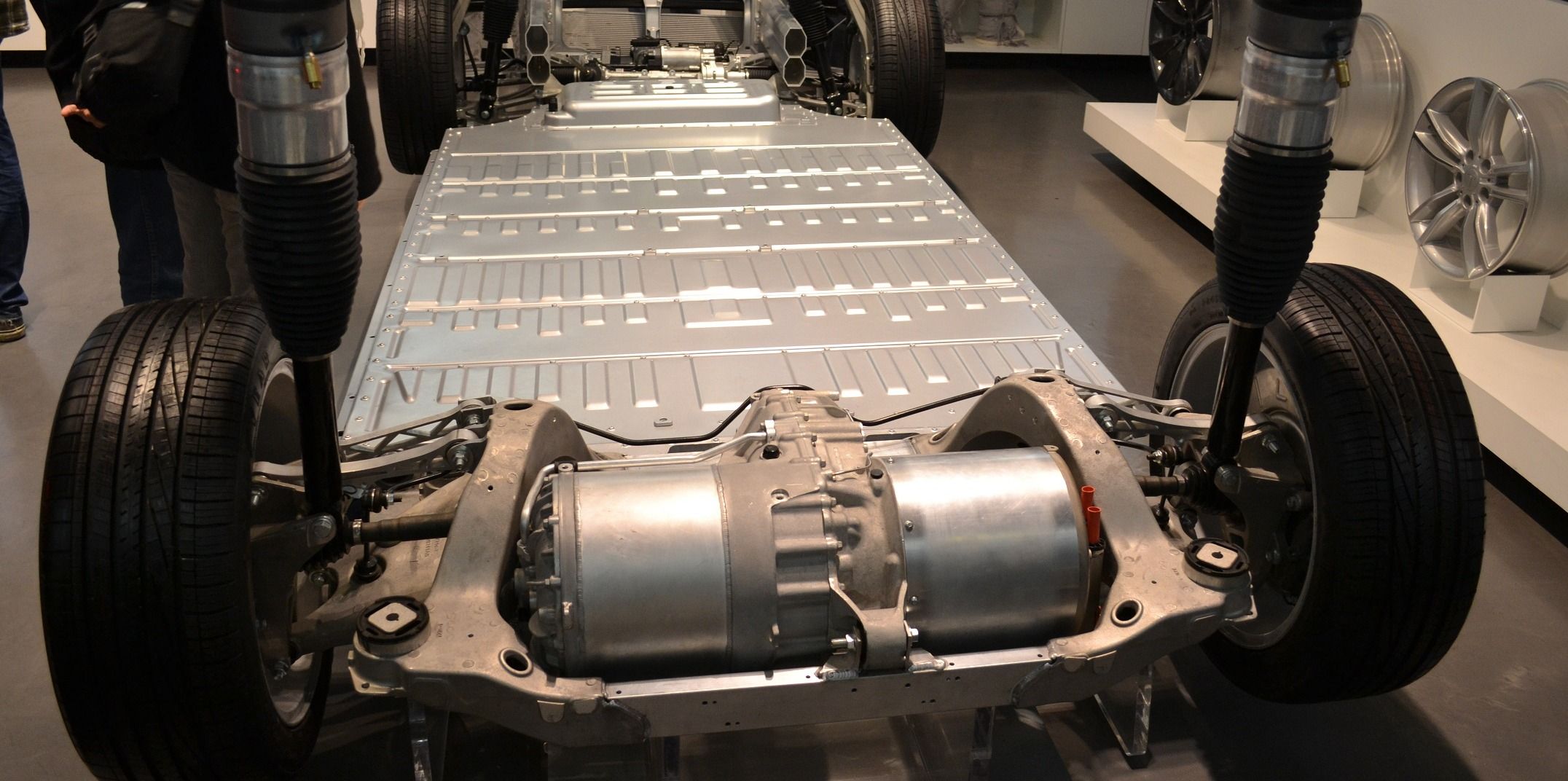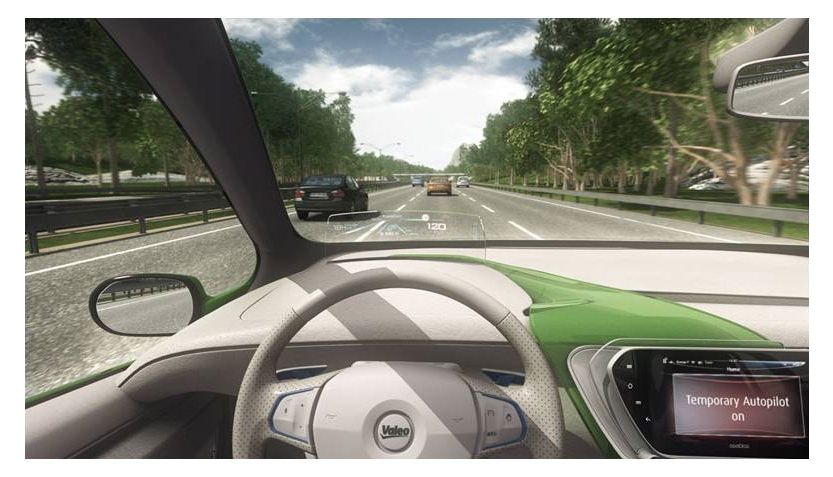Archive for the ‘sustainability’ category: Page 593
Oct 18, 2016
Thousands of ‘scrotum frogs’ mysteriously dying
Posted by Sean Brazell in category: sustainability
I’m no biologist, but from what I understand frogs are kind of like the canary in the coal mine: They breath with their skin, thus environmental disasters will effect them first. So very, very not good.
Peruvian authorities want to know why more than 10,000 endangered frogs living near Lake Titicaca have suddenly died.
The Titicaca Water Frog is considered a “critically endangered” species, according to conservation groups. The giant amphibians, which can weigh more than two pounds, have excessive skin folds that have earned the species a rather wrinkly nickname: scrotum frog.
Continue reading “Thousands of ‘scrotum frogs’ mysteriously dying” »
Oct 17, 2016
How quantum effects could improve artificial intelligence
Posted by Andreas Matt in categories: computing, encryption, quantum physics, robotics/AI, sustainability
(Phys.org)—Over the past few decades, quantum effects have greatly improved many areas of information science, including computing, cryptography, and secure communication. More recently, research has suggested that quantum effects could offer similar advantages for the emerging field of quantum machine learning (a subfield of artificial intelligence), leading to more intelligent machines that learn quickly and efficiently by interacting with their environments.
In a new study published in Physical Review Letters, Vedran Dunjko and coauthors have added to this research, showing that quantum effects can likely offer significant benefits to machine learning.
“The progress in machine learning critically relies on processing power,” Dunjko, a physicist at the University of Innsbruck in Austria, told Phys.org. “Moreover, the type of underlying information processing that many aspects of machine learning rely upon is particularly amenable to quantum enhancements. As quantum technologies emerge, quantum machine learning will play an instrumental role in our society—including deepening our understanding of climate change, assisting in the development of new medicine and therapies, and also in settings relying on learning through interaction, which is vital in automated cars and smart factories.”
Continue reading “How quantum effects could improve artificial intelligence” »
Oct 16, 2016
Saudi Commentator Praises Israel; Latest Sign of Warming Ties Between Jewish and Arab States
Posted by Karen Hurst in categories: economics, security, sustainability
Could technology build friendships for Israel across the Middle East?
Israel and Saudi Arabia should form a “collaborative alliance” to become the “twin pillars of regional stability” in the Middle East, a top Saudi lobbyist wrote in The Hill on Tuesday, in what is the latest sign of warming and increasingly-public ties between Arab countries and the Jewish state.
Salman al-Ansari, the founder and president of the Saudi American Public Relations Affairs Committee, asserted that Israel can assist Saudi Arabia in implementing its Vision 2030, the Kingdom’s blueprint to diversify its economy. Al-Ansari specifically mentioned Israel’s expertise in mining and water technology, which makes Israel “extraordinarily qualified to help Saudi Arabia with its ambitious desalination plans.”
Oct 15, 2016
IEEE Reboots, Scans for Future Architectures
Posted by Karen Hurst in categories: computing, information science, quantum physics, solar power, sustainability
If there is any organization on the planet that has had a closer view of the coming demise of Moore’s Law, it is the Institute of Electrical and Electronics Engineers (IEEE). Since its inception in the 1960s, the wide range of industry professionals have been able to trace a steady trajectory for semiconductors, but given the limitations ahead, it is time to look to a new path—or several forks, to be more accurate.
This realization about the state of computing for the next decade and beyond has spurred action from a subgroup, led by Georgia Tech professor Tom Conte and superconducting electronics researcher, Elie Track called “Rebooting Computing,” which produces reports based on invite-only deep dives on a wide range of post-Moore’s Law technologies, many of which were cited here this week via Europe’s effort to pinpoint future post-exascale architectures. The Rebooting Computing effort is opening its doors next week for a wider-reaching, open forum in San Diego to bring together new ideas in novel architectures and modes of computing as well as on the applications and algorithm development fronts.
According to co-chair of the Rebooting Computing effort, Elie Track, a former Yale physicist who has turned his superconducting circuits work toward high efficiency solar cells in his role at startup Nvizix, Moore’s Law is unquestionably dead. “There is no known technology that can keep packing more density and features into a given space and further, the real issue is power dissipation. We just cannot keep reducing things further; a fresh perspective is needed.” The problem with gaining that view, however, is that for now it means taking a broad, sweeping look across many emerging areas; from quantum and neuromorphic devices, approximate computing, and a wide range of other technologies. “It might seem frustrating that this is general, but there is no clear way forward yet. What we all agree on is that we need exponential growth in computing engines.”
Continue reading “IEEE Reboots, Scans for Future Architectures” »
Oct 15, 2016
Los Alamos research team develops new quantum dot solar procedures
Posted by Karen Hurst in categories: internet, quantum physics, solar power, sustainability
Los Alamos is the 1st place where QC Internet was launched.
A research team from Los Alamos National Laboratory published a paper in the journal Nature Energy this week that demonstrates an effective method for scaling up quantum dot solar power technology from production models to full-sized windows that could power a building.
“We are developing solar concentrators that will harvest sunlight from building windows and turn it into electricity, using quantum-dot based luminescent solar concentrators,” lead scientist and leader of the Los Alamos Center for Advanced Solar Photophysics (CASP) Victor Klimov said.
Continue reading “Los Alamos research team develops new quantum dot solar procedures” »
Oct 15, 2016
“Earth has shifted”-Inuit elders issue warning to NASA and the world
Posted by Aleksandar Vukovic in categories: climatology, sustainability

https://youtube.com/watch?v=RNhK67GftDk
The elders declare that the sun rises at a different position now, not where it used to previously. They also have longer daylight to hunt now, the sun is much higher than earlier, and it gets warmer much quickly.
Global Climate Change: The Earth Has Shifted, Say Inuit Elders. A new warning has come to NASA from the Inuits. They are warning that the change in climate is not due to global warming but rather, because of the Earth shifting a bit.
Continue reading “‘Earth has shifted’-Inuit elders issue warning to NASA and the world” »
Oct 15, 2016
Tesla is building new ‘drive unit production lines’ at the Gigafactory, will not only manufacture battery packs
Posted by Klaus Baldauf in categories: sustainability, transportation
The Tesla Gigafactory is key to the automaker’s planned production ramp up to 500,000 cars per year by 2018. It is expected to both significantly reduce the cost of Tesla’s battery packs, which will enable Tesla to reach the $35,000 price point for the Model 3, and to secure a large supply of battery cells.
Those two products, battery cells and battery packs, were until now the only products expected to be manufactured at the factory.
We now learn that Tesla plans to also manufacture drive units at the plant. With vehicle battery packs, the automaker will be closer to producing its entire next generation powertrains at what is expected to be the largest factory in the world by footprint.
Oct 7, 2016
Wheego and Valeo get California road driverless testing permits
Posted by Shane Hinshaw in categories: robotics/AI, sustainability, transportation
Self-driving car testing in California is becoming a badge of progress for companies working in the space. Only 17 companies in total have the honor, including two just added to the list: Wheego Electric Cars, and Valeo North America.
The Wall Street Journal reports that both these new companies now have approval to run tests with a single vehicle each, and four drivers per team. That might not sound like much, but it’s a foot in the door, and membership in the club is itself somewhat testament to how much the companies have already accomplished, since the other members include major carmakers like Tesla, Cruise (which got its license before being acquired by GM), promising startup Drive.ai, and Baidu, to name a few.
The new members are interesting additions: Wheego is an electric carmaker which got its start taking Chinese-Built cars, outfitting them with battery’s and electric motors in the U.S. and putting them on the road. The company now says it builds electric vehicles designed “for a global market,” and focuses on the benefits of connected tech in making vehicles aware of their surroundings.
Continue reading “Wheego and Valeo get California road driverless testing permits” »
Oct 6, 2016
Alien Implants Now Science Fact as DARPA Invades the Human Brain
Posted by Karen Hurst in categories: food, neuroscience, science, sustainability
Imagine a cow being branded on a farm. Now imagine your family dog being micro-chipped so he can be returned to his owners if lost. The next logical step from these commonly accepted practices include the tagging and observation of you. The only question is who is doing the tagging?

















